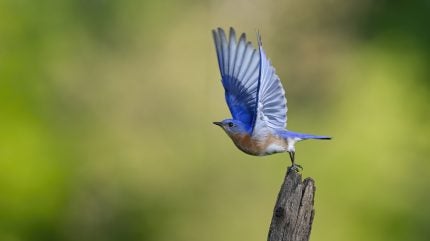

Bluebird bio will be acquired by investment firms Carlyle and SK Capital Partners, marking the end to its turbulent time as a publicly traded company.
The agreement comes after years of financial struggles, declining stock performance, and mounting cash flow concerns, with the investment firms stepping in to provide the necessary capital to keep bluebird’s gene therapy programmes afloat. On 21 February, bluebird’s shares fell 30% when markets opened to $4.9 per share – trading well below their 2018 peak of around $150 per share.

Discover B2B Marketing That Performs
Combine business intelligence and editorial excellence to reach engaged professionals across 36 leading media platforms.
Under the terms of the agreement, bluebird shareholders will receive $3 per share in cash, with the potential for an additional $6.84 per share through a contingent value right (CVR), valuing the deal at approximately $29m. The CVR is tied to the company’s ability to achieve $600m in net sales within a trailing 12-month period before the end of 2027.
Bluebird has struggled financially in the last few years, with high development costs and slower-than-expected market adoption limiting revenue growth. In 2021, the company withdrew from the European market after failing to secure reimbursement agreements for two of its gene therapy products Zynteglo (betibeglogene autotemcel) and Skysona (elivaldogene autotemcel). Since then, it has focused on the US market, but has continued to face financial pressures, leading to a series of restructuring efforts. In 2022, bluebird reduced its workforce by 30%, followed by an additional 25% cut in 2024, with the goal of reducing operating expenses by approximately 20%.
Bluebird bio went public in 2013, raising approximately $116m through its IPO. The company has developed three US Food and Drug Administration (FDA)-approved gene therapy products, including Zynteglo and Skysona, which treat transfusion-dependent beta-thalassemia (TDT) and cerebral adrenoleukodystrophy (CALD), respectively.
Its third gene therapy, Lyfgenia (lovotibeglogene autotemcel), is approved for the treatment of sickle cell disease. In a closely competitive race, the therapy secured FDA approval ahead of time in December 2023 on the same day as Vertex/CRISPR’s Casgevy (exagamglogene autotemcel), approved for the same indication.

US Tariffs are shifting - will you react or anticipate?
Don’t let policy changes catch you off guard. Stay proactive with real-time data and expert analysis.
By GlobalDataBluebird found itself in trouble in 2023 when it failed to secure a priority review voucher (PRV) from the FDA after Lyfgenia’s approval. The company expected to receive the voucher and had already arranged to sell it to Novartis for $103m. However, the FDA denied the PRV, stating that Lyfgenia’s active ingredient was already used in Zynteglo, which had already borne the company a PRV on its approval in 2022.
This unexpected shortfall left bluebird scrambling to raise funds. To fill the gap, it pursued two funding options – a $150m public stock offering from Goldman Sachs and JP Morgan, and up to $100m in financing from Alterna Capital Solutions by selling trade accounts receivable. The unexpected loss of the PRV was a major financial blow for bluebird, which was already struggling with cash flow issues.
Bluebird’s financial situation remained precarious after this. By late 2024, the company projected that it would need to break even with its quarterly cash flow by the second half of 2025. However, market adoption of its therapies has been slow, impacted by their high cost and competition from alternative treatments. Vertex Pharmaceuticals’ Casgevy, for example, is priced at $2.2m per patient, while bluebird set the wholesale acquisition cost of Lyfgenia at $3.1m. The company’s stock has also suffered, declining significantly in value from its peak in 2018.
Cell & Gene Therapy coverage on Pharmaceutical Technology is supported by Cytiva.
Editorial content is independently produced and follows the highest standards of journalistic integrity. Topic sponsors are not involved in the creation of editorial content.



